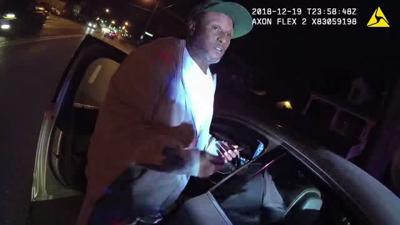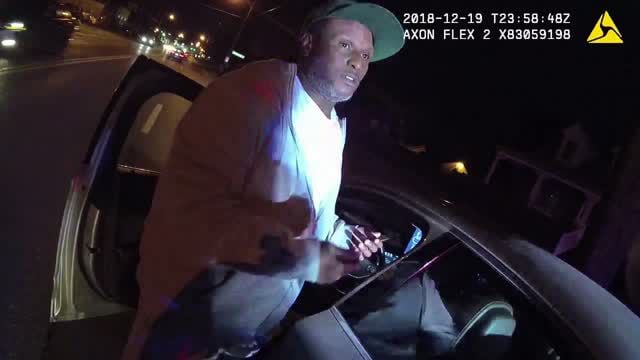LOUISVILLE, Ky. (WDRB) -- The city of Louisville agreed to pay $70,000 to settle a discrimination lawsuit in which police assumed a Black driver had drugs and improperly threatened to call in a police dog while his children were in the car if he did not consent to a search.
The Dec. 19, 2018, stop and search of Marlo Brown was specifically cited in the U.S. Department of Justice's investigation of the Louisville Metro Police Department, which concluded LMPD repeatedly conducted unlawful stops, searches and detainments.
"LMPD coerces people into acquiescing to searches instead of obtaining voluntary consent," according to the investigation. "In one incident we reviewed, officers told a driver whose young children were in the car that they would call in a police dog if he did not consent to a search. These factors may affect whether consent is voluntary or the product of police coercion."
Brown was pulled over for failing to signal while changing lanes, but the Louisville police officer who made the stop assumed Brown was up to much more than a traffic violation, according to body camera video.
Officer Stephen Roederer told the officer he was riding with that Brown was "probably fu**ing driving around buying dope," according to body camera video of the stop obtained by WDRB News.
Noting that Brown had his children in the car, Roederer called Brown a "fu**ing piece of shit."
"This is probably going to be a really good stop," Officer Jessica Dickey added.
The officers frisked Brown, threatened to bring in a drug-sniffing dog, searched his vehicle and questioned his children. But they found nothing illegal, so they let him go with no ticket.
On Sept. 4, the city agreed to pay $70,000 to settle a lawsuit claiming police violated Brown's constitutional rights by detaining and searching him and his vehicle without evidence of any wrongdoing, saying the officers' actions "shock the conscience."
The settlement, obtained by WDRB News through the open records law, stipulates that Metro Government acknowledges no wrongdoing.
Attorney Ashlea Hellman, who represented Brown, said in a statement that her client "bravely" stepped up with others who have filed suit against the department "to bring attention to the pattern of unconstitutional stops that were prevalent within LMPD.
"We want the streets of Louisville to be safe, but attempting to accomplish that through the profiling of certain individuals creates a growing risk to all of our liberties and civil rights," she said. "Unconstitutional stops belittle people's self-esteem and character, make them feel less of a citizen and less of a person, and only further break down the already strained relationship between law enforcement and the communities these policies affect."
Several allegedly illegal traffic stops have resulted in hundreds of thousands of dollars paid by the city on behalf of police and prompted the department to implement several new policies which raised the threshold for pulling over drivers, adding rules on when people can be removed from their vehicles or handcuffed as well as limiting the number of police cruisers that can be involved.
Video in some of the stops has gone viral, prompting complaints of racial bias and community outrage.
Last year, for example, the city paid $375,000 to Tae-Ahn Lea, a Black teenager whose constitutional rights were violated when Louisville police pulled him over in 2018 for allegedly making a wide turn, removed him from his vehicle and handcuffed him while they searched his car.
In Brown's case, as with many other lawsuits filed against police, the Jefferson County Attorney's office argued against allowing the DOJ report to be used as evidence.
But U.S. District Court Judge David Hale ruled last fall that the DOJ report "interjects new facts and evidence that were not previously available to Plaintiffs or the court" and the County Attorney's office did not produce any evidence that the report lacked "trustworthiness."
This story may be updated.
Related Stories:
- City fights to keep Department of Justice findings out of lawsuits against Louisville police
- Louisville officers assumed black driver had drugs, body camera video shows
Copyright 2024 WDRB Media. All Rights Reserved.














